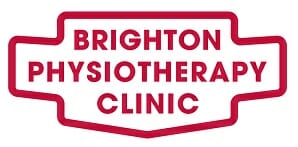Radiculopathy/Pinched Nerve Treatment in Brighton & Hove
Radiculopathy, also known as a pinched nerve, is a condition that results from irritation of the nerves at the back. It occurs when the disc covering the spine gets damaged and affects the nerve roots nearby. This leads to pain and neuropathy, or improper functioning of the nerves.
Radiculopathy can present uncomfortable symptoms such as numbness, radicular pain, weakness, and needles and pins. With physiotherapy and chiropractic treatment, radicular pain can be properly managed. Surgery is used as a last option if physiotherapy and medication fail.
What Are the Types of Radiculopathy?
Radiculopathy affects the nerve roots along the spine at the back. It is generally divided into three types depending on the exact location of the radicular pain.
Cervical Radiculopathy
Cervical radiculopathy is used to describe radiculopathy that occurs at the cervical region of the body. The common locations affected are C5-C6 and C6-C7. Cervical radiculopathy is associated with radical pain in the neck, upper back, and shoulder. It also comes with a weakness of the body.
Lumbar Radiculopathy
Lumbar radiculopathy is also called sciatica. It is used to describe radicular pain in the low back, hip region, and leg. It is caused by compression of the lumbar nerves at L4 and L5 or the sacral nerves at S1. Sciatica also causes irritation at the lower back and can also cause radicular pain in the arm or shoulder, and weakness in the leg.
Thoracic Radiculopathy
Thoracic radiculopathy occurs when the nerve around the mid-region at the thoracic vertebrae is compressed. It causes radicular pain in the chest or torso, and sharp pain in the abdomen. Thoracic radiculopathy can occur at any of the vertebrae levels from T1 to T12. It sometimes occurs with thoracic myelopathy.
What Causes Radiculopathy?
Radiculopathy is majorly caused by spinal nerve compression. Herniated spinal discs can also cause nerve compression. Radiculopathy can also be caused by osteoarthritis, degenerative disc disease, and spondylolisthesis. In some rare cases, radiculopathy can be caused by radiation and diabetes mellitus.

What Are the Risk Factors for Radiculopathy?
There are several factors that make people susceptible to radiculopathy. These increase if the individual drives a lot or is used to a sedentary lifestyle. These factors include regular and heavy manual labour, smoking, chronic cough, pregnancy, and strenuous activities.
The male gender is also more likely to develop radical pain than the female gender. In most of these factors, the chance of developing radiculopathy is reduced with regular exercise and physiotherapy.
How Is Radiculopathy Treated?
The treatment of radiculopathy, or pinched nerves, depends on the severity of the condition. When left untreated, symptoms may get worse. Some of the treatment options for radiculopathy include:
Physiotherapy
Physiotherapy is the next valid option for treating radiculopathy other than surgery. Physiotherapy and chiropractic treatment focus on stretching and strengthening the muscles. This soothes and frees the compressed nerves. Physiotherapy also helps the affected area develop core stabilization. With proper physiotherapy, the patient can also get access to spinal traction for better results.
Medication
Medication involves the use of synthetic drugs and analgesics to reduce the radicular pain. Injection of steroid medication (corticosteroids) may also help to reduce pain and swelling. Possible drugs that can be administered for radiculopathy include ibuprofen and aspirin.
Using Positioning Aids
In some cases, patients may require positioning aids to carry out normal activities. These are recommended even while going through physiotherapy. Positioning aids such as a cervical pillow can help patients with cervical radiculopathy to sleep well at night. A cervical collar may help too.
Surgery
Surgery is used as a last resort to combat radiculopathy in severe cases. This is recommended when the radicular pain becomes chronic lasting for more than twelve weeks. Surgical procedures depend on the location and the type of spinal nerve compression. These procedures may include posterior cervical laminoforaminotomy, discectomy, and disc replacement.
Get Help Today!
Radicular pain is different from referred pain and can cause further complications if left untreated. The compressed nerve can also be permanently damaged. Physiotherapy is recommended once the onset of radiculopathy is noticed. Contact us today for a proper assessment of the condition and to begin proper physiotherapy treatment.
